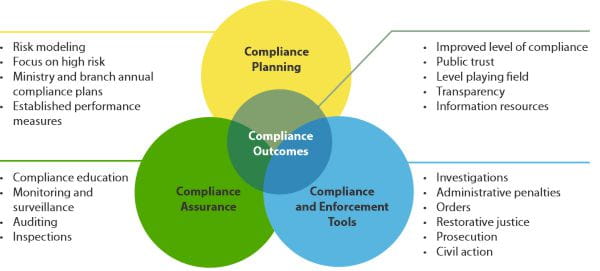Ensuring Environmental Law Compliance: A Business Imperative
3 min read

Ensuring Environmental Law Compliance: A Business Imperative
Environmental law compliance is no longer just a moral obligation; it has become a critical aspect of sustainable business practices. As environmental concerns rise globally, understanding and adhering to environmental laws are imperative for businesses to operate responsibly.
Navigating the Regulatory Landscape
Environmental laws vary widely across jurisdictions and cover aspects such as air and water quality, waste management, and biodiversity protection. Businesses must familiarize themselves with local, national, and international regulations relevant to their operations to ensure compliance.
Waste Management and Pollution Control
A significant component of environmental law compliance involves waste management and pollution control. Businesses must implement effective waste disposal systems, adhere to emission standards, and invest in technologies that minimize their environmental footprint. This not only ensures compliance but also contributes to a cleaner environment.
Natural Resource Conservation
Preserving natural resources is a key consideration in environmental law. Businesses operating in industries such as mining, forestry, or agriculture must comply with regulations aimed at conserving biodiversity, preventing deforestation, and ensuring sustainable resource management.
Renewable Energy Adoption
Environmental law encourages the transition to renewable energy sources. Businesses can achieve compliance by incorporating renewable energy solutions, such as solar or wind power, into their operations. This not only aligns with legal requirements but also contributes to a reduction in greenhouse gas emissions.
Eco-Friendly Product Development
Environmental law compliance extends to product development. Businesses are increasingly required to consider the environmental impact of their products, from raw material sourcing to manufacturing processes. Developing eco-friendly products aligns with regulations and meets the growing demand for sustainable consumer goods.
Community Engagement and Stakeholder Communication
Engaging with local communities and stakeholders is a vital aspect of environmental law compliance. Businesses must communicate transparently about their environmental initiatives, address concerns raised by communities, and actively involve stakeholders in decision-making processes related to environmental impact.
Environmental Impact Assessments
Many jurisdictions mandate businesses to conduct environmental impact assessments before initiating new projects. These assessments evaluate potential environmental effects and propose measures to mitigate negative impacts. Adhering to these requirements demonstrates a commitment to responsible business practices.
Adaptation to Climate Change Regulations
As concerns about climate change intensify, regulations related to carbon emissions and climate adaptation become more stringent. Businesses must monitor and comply with evolving climate change regulations, adopting practices that contribute to reducing their carbon footprint and enhancing resilience.
Legal Consequences of Non-Compliance
Non-compliance with environmental laws can result in severe legal consequences, including fines, penalties, and even business shutdowns. Moreover, public perception and brand reputation can suffer, affecting consumer trust and investor confidence. Businesses are increasingly held accountable for their environmental practices.
Continuous Monitoring and Improvement
Environmental law compliance is not a one-time task; it requires continuous monitoring and improvement. Businesses should establish mechanisms for regular environmental audits, track their performance against legal requirements, and adapt their practices to align with emerging environmental standards.
For businesses seeking insights into Environmental Law Compliance, Great Blog About offers valuable resources. Navigating the complex landscape of environmental regulations is a journey toward sustainability, ethical business conduct, and a positive contribution to the planet.







